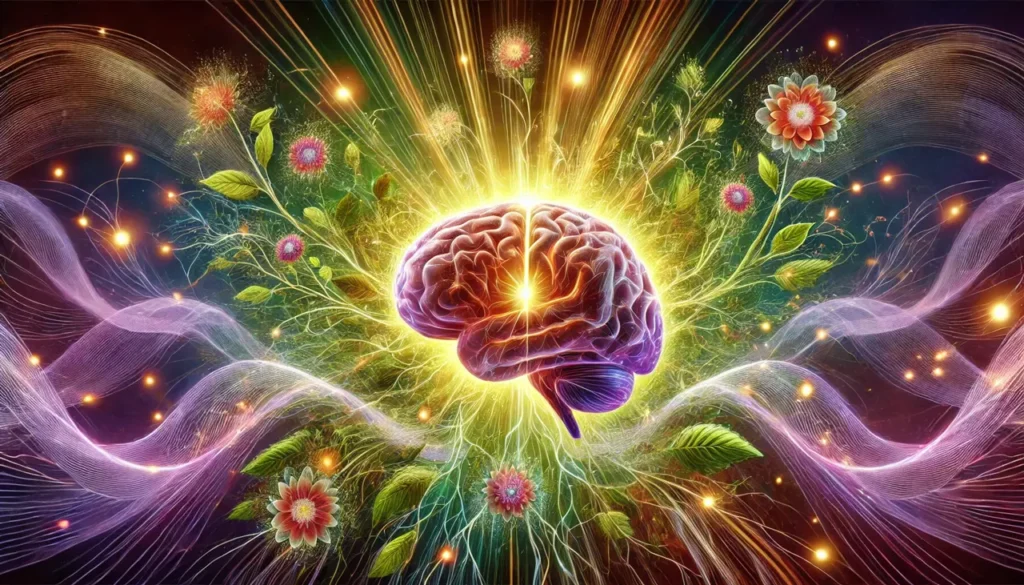Rhatany (Krameria triandra) is a perennial shrub indigenous to South America, particularly prevalent in the Andean regions of Peru and Bolivia. Historically, indigenous cultures have utilized it for its medicinal properties, primarily as a treatment for various ailments, including gastrointestinal disorders and skin conditions. In recent years, there has been growing interest in Rhatany as a potential nootropic supplement. This article explores the nootropic benefits of Rhatany, detailing its source, chemistry, physiological mechanisms, dosing recommendations, side effects, interactions, and pertinent information for potential users.
You May Also Like:
Source of Rhatany
Rhatany is derived from the roots of the Krameria triandra plant, which belongs to the Krameriaceae family. The plant thrives in arid regions and is often found growing in sandy or rocky soils. Its roots are typically harvested for medicinal use, possessing astringent, antimicrobial, and antioxidant properties. Rhatany’s distinctive reddish color comes from its high concentration of tannins, primarily krameria tannins, which have been linked to many health benefits.
Traditionally, Rhatany has been utilized in herbal medicine to treat diarrhea, dysentery, and other gastrointestinal disturbances. It is also employed for its antiseptic and anti-inflammatory properties in treating skin irritations and infections. Due to its historical usage and emerging research on its potential cognitive-enhancing effects, Rhatany is gaining traction as a nootropic supplement.
Chemistry of Rhatany
The pharmacological properties of Rhatany can be attributed to its rich composition of bioactive compounds. Key constituents include:
- Tannins: Rhatany is particularly high in hydrolyzable tannins, which are polyphenolic compounds known for their astringent properties. Krameria tannins, the principal tannins in Rhatany, exhibit strong antioxidant and antimicrobial activities. These properties are vital for combating oxidative stress, which is implicated in various neurodegenerative diseases and cognitive decline.
- Flavonoids: Rhatany also contains flavonoids, a diverse group of plant metabolites with significant antioxidant properties. Flavonoids can enhance cerebral blood flow, protect neuronal cells from oxidative damage, and promote overall brain health.
- Saponins: These compounds contribute to the immunomodulatory effects of Rhatany, potentially influencing neurotransmission and cognitive function.
- Alkaloids: Although present in smaller quantities, alkaloids in Rhatany may also play a role in its pharmacological effects, including potential mood-enhancing properties.
The combination of these compounds contributes to the broad spectrum of Rhatany’s health benefits, including its potential nootropic effects.
Physiological Mechanisms and Nootropic Potential
The nootropic potential of Rhatany stems primarily from its antioxidant, anti-inflammatory, and neuroprotective properties. Research into the mechanisms underlying its cognitive-enhancing effects is still in the early stages, but several key processes have been identified:
- Antioxidant Activity: The tannins and flavonoids present in Rhatany play a crucial role in combating oxidative stress in the brain. Oxidative stress has been linked to cognitive decline and neurodegenerative disorders. By neutralizing free radicals, Rhatany may protect neuronal cells and support cognitive function.
- Anti-inflammatory Effects: Chronic inflammation is known to contribute to neurodegenerative diseases such as Alzheimer’s and Parkinson’s. The anti-inflammatory properties of Rhatany may help mitigate neuroinflammation, thereby preserving cognitive function. This effect is likely due to the presence of tannins and saponins, which can modulate inflammatory pathways in the brain.
- Neuroprotection: Rhatany’s constituents may exert neuroprotective effects by enhancing synaptic plasticity and promoting neurogenesis. This mechanism is crucial for memory formation and overall cognitive function.
- Mood Enhancement: Some studies suggest that Rhatany may positively affect mood and mental clarity. The alkaloids and flavonoids present may enhance neurotransmitter activity, potentially alleviating symptoms of anxiety and depression, which can hinder cognitive performance.
While promising, it is important to note that much of the existing research on Rhatany’s nootropic effects is preliminary and primarily based on animal studies. More rigorous human clinical trials are needed to substantiate these claims.

Dosage and Usage for Nootropic Benefits
Determining the appropriate dosage of Rhatany for nootropic benefits can be challenging due to the variability in supplement formulations and individual responses. However, general guidelines based on traditional use and available studies can be provided:
- General Dosage Range: For general health benefits, Rhatany root powder is typically taken in doses ranging from 1 to 3 grams per day. This dosage is considered safe for most individuals and may provide the beneficial effects of its antioxidant and anti-inflammatory properties.
- Extract Dosage: Rhatany extracts, which are more concentrated than whole root powder, are usually recommended at a dosage between 100 and 500 mg per day. The specific dosage should depend on the concentration of active compounds in the extract.
- Nootropic-Specific Dosage: While no established dosing guidelines exist specifically for cognitive enhancement, individuals seeking to harness the nootropic benefits of Rhatany may consider starting at the lower end of the dosage range (100 mg of extract) and gradually increasing to assess individual tolerance and response.
As with any supplement, it is advisable to consult a healthcare professional before beginning a new regimen, especially for those with underlying health conditions or those taking medications.
Side Effects and Safety
Rhatany is generally considered safe when taken at appropriate doses; however, potential side effects and contraindications should be noted:
- Gastrointestinal Issues: Some individuals may experience gastrointestinal discomfort, such as nausea, vomiting, or diarrhea, particularly when taking higher doses of Rhatany. Starting with lower doses and gradually increasing can help mitigate these effects.
- Allergic Reactions: Allergic reactions to Rhatany are relatively rare but can occur, especially in individuals sensitive to plants in the Krameriaceae family. Symptoms may include skin rashes, itching, or respiratory issues.
- Dry Mouth: Some users have reported experiencing dry mouth after using Rhatany supplements, which may be related to its astringent properties. Staying hydrated can alleviate this effect.
- Potential Toxicity: Although Rhatany is generally safe, high doses of tannins can lead to toxicity and potentially result in hepatotoxicity or nephrotoxicity. Adhering to recommended dosages is essential to minimize the risk of adverse effects.

Potential Interactions with Drugs and Supplements
Rhatany’s bioactive compounds may interact with certain medications and supplements, necessitating caution:
- Anticoagulants: Due to their potential blood-thinning properties, Rhatany may enhance the effects of anticoagulant medications, such as warfarin or aspirin. This interaction could increase the risk of bleeding, particularly in individuals already prone to bleeding disorders.
- Immunosuppressive Drugs: Given Rhatany’s immunomodulatory effects, individuals taking immunosuppressive medications for conditions such as rheumatoid arthritis or after organ transplants should consult their healthcare provider before using Rhatany, as it may interfere with the effectiveness of these medications.
- Antihypertensive Medications: Rhatany may lower blood pressure, which could be beneficial for individuals with hypertension. However, those taking antihypertensive medications should monitor their blood pressure closely, as combining Rhatany with these medications could lead to hypotension.
- Other Nootropics and Supplements: The synergistic effects of Rhatany with other nootropic substances, such as caffeine or L-theanine, are not well-studied. Therefore, it is advisable to approach combination use with caution, as effects can vary based on individual biochemistry.
Risks for Individuals with Certain Health Conditions
Certain health conditions may require individuals to exercise caution when using Rhatany:
- Pregnancy and Breastfeeding: There is insufficient evidence to support the safety of Rhatany during pregnancy or breastfeeding. As a precaution, it is recommended that you avoid using It during these periods.
- Gastrointestinal Disorders: Individuals with existing gastrointestinal conditions, such as irritable bowel syndrome (IBS) or ulcerative colitis, should consult a healthcare provider before using Rhatany due to its astringent properties, which could exacerbate symptoms.
- Low Blood Pressure or Clotting Disorders: Individuals with low blood pressure or bleeding disorders should avoid Rhatany due to its potential anticoagulant effects, which could worsen these conditions.
- Surgery: Similar to other supplements with blood-thinning properties, it is advisable to discontinue Rhatany at least two weeks before any scheduled surgery to minimize the risk of excessive bleeding.
Conclusion
Rhatany exhibits promising potential as a nootropic supplement, primarily due to its antioxidant, anti-inflammatory, and neuroprotective properties. However, as with any supplement, responsible use is essential. While preliminary research indicates its cognitive-enhancing effects, more rigorous human studies are needed to validate these claims.
Individuals interested in incorporating Rhatany into their supplement regimen should consider dosage, potential side effects, and interactions with medications. Consultation with a healthcare professional is strongly recommended, particularly for those with pre-existing health conditions or those taking prescription medications. With careful and informed use, Rhatany may be a valuable addition to cognitive health strategies and overall well-being.

References:
- Rhatany – Uses, Side Effects, and More. Retrieved from: https://www.webmd.com/vitamins/ai/ingredientmono-382/rhatany
- Antioxidant and photoprotective activity of a lipophilic extract containing neolignans from Krameria triandra roots. Retrieved from: https://pubmed.ncbi.nlm.nih.gov/11914952/
- Krameria. Retrieved from: https://en.wikipedia.org/wiki/Krameria
Important Note: The information contained in this article is for general informational purposes only, and should not be construed as health or medical advice, nor is it intended to diagnose, prevent, treat, or cure any disease or health condition. Before embarking on any diet, fitness regimen, or program of nutritional supplementation, it is advisable to consult your healthcare professional in order to determine its safety and probable efficacy in terms of your individual state of health.
Regarding Nutritional Supplements Or Other Non-Prescription Health Products: If any nutritional supplements or other non-prescription health products are mentioned in the foregoing article, any claims or statements made about them have not been evaluated by the U.S. Food and Drug Administration, and such nutritional supplements or other health products are not intended to diagnose, treat, cure, or prevent any disease.


